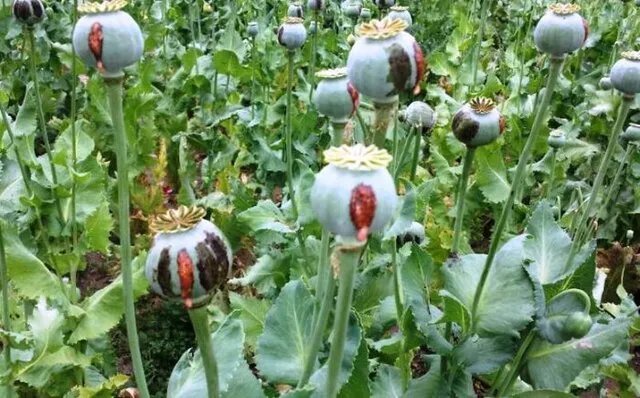RASC News Agency: The United Nations has revealed a concerning 19% increase in poppy cultivation across Afghanistan, despite an official ban imposed by the Taliban. According to a recent report by the UN Office on Drugs and Crime (UNODC), the cultivation of poppies in Afghanistan has surged by 19% in 2024 compared to the previous year. Released on Wednesday, November 6, the report indicates that poppy cultivation has now reached 12,800 hectares, up from an estimated 10,800 hectares in 2023.
The UN has expressed deep concern over this rise, warning of its harmful repercussions for both Afghanistan and the global community. While 2024 has seen an increase, the report highlights that poppy cultivation remains significantly below levels seen in 2022, when approximately 232,000 hectares were devoted to poppy fields. In 2023, Afghanistan witnessed an extraordinary 95% reduction in cultivation. The Executive Director of UNODC stated, “With the current reduced levels of poppy cultivation, we face both a unique opportunity and a profound obligation to assist Afghanistani farmers in finding sustainable, lawful sources of income.”
He stressed that Afghanistan’s population, already grappling with severe financial and humanitarian challenges, urgently needs alternative livelihoods. Without these substitutes, Afghanistan’s fragile economy could face further destabilization. The report also underscores a notable shift in the regions primarily involved in poppy farming. Traditionally concentrated in southwestern provinces the heartland of poppy cultivation until 2023 the epicenter has now moved to northeastern provinces, particularly Badakhshan.
In 2024, an estimated 59% of poppy cultivation occurred in the northeast, reflecting a staggering 381% increase in these provinces compared to 2023. While the Taliban have repeatedly claimed that poppy cultivation has been eradicated under their rule, describing this as a significant achievement, the scarcity of viable alternative crops and Afghanistan’s deteriorating economic landscape present ongoing challenges to ending opium production. Reports also suggest that the Taliban have allowed poppy farming to persist in southern provinces, which are predominantly populated by Pashtun communities, raising questions about the consistency of the group’s enforcement across regions.






